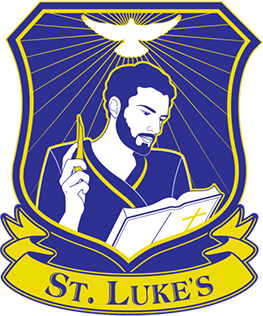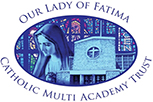Welcome to Year 1
 Year One begins the children's journey into Key Stage One, so it is a very important year!
Year One begins the children's journey into Key Stage One, so it is a very important year!
We look forward to sharing our new and exciting news with you about all the fantastic things that happen in our Year 1 class.
Our Topics:
- Home is where the heart is
- Inside the castle walls
- All creatures great and small
The Year 1 Team
Class teacher:
Mrs M Nickbakhsh
LSAs:
► Mrs Kahouadji
► Mrs Sarkies
This terms Caritas Curriculum Learning
Year 1 Home is where the heart is. Starting with the Lighthouse Keeper’s Lunch story we travel the UK in this topic and find the difference between physical and human geography comparing how people live in their communities. During science we discover all the different seasons and begin to measure the changes, noticing how they are different across the UK. In art we discover how our bodies can make spirals and explore the spiral shapes in the physical geography around us, especially shells by the coastline. Through our music we will learn to rap and create our own rap about our community. And of course, we will bring our community together at the end of term as we prepare a nativity performance remembering how important a community is in caring for everyone.
knowledge organiser autumn.pdf
Year 1 Caritas Learning Overview
caritas curriculum year 1 one page.pdf
Home Learning
Home learning tasks are sent home each Wednesday. Each child will receive a Mathematics activity sheet and a Spelling practice sheet, which will be placed in their home learning book.
In addition, Topic home learning should also be completed and submitted weekly.
We kindly ask that pupils return their home learning books by the following Monday.
Expectations
We expect every student to complete their assigned tasks each week. This will ensure they stay on track with their learning and continue to build on the skills they are developing in the classroom. Please assist and encourage your child to set aside time each week to complete their work.
Support
If your child needs support with any of their home learning tasks, please do not hesitate to reach out to their teacher. We are committed to working together to support your child’s education.
Here is the link to Active Learn where children can practice maths further through online fun and engaging games. Website: https://www.activelearnprimary.co.uk/login?e=-1&c=0
P.E.
PE
Our PE lessons are on Wednesdays and Thursday. Children are expected to bring their full PE kits, which have their names on, to school at the beginning of the term and leave them there until half term. Please ensure that your child has the correct indoor and outdoor kit, as the weather gets colder and wetter children will need to be dressed appropriately. Earrings must be taken out before PE lessons - taped earrings are not permitted.
Reading and Spelling
In Year 1, children are expected to:
• Read at home at least 5 times per week with an adult.
• Bring their reading book and reading record to school every day.
• Practise phonics sounds and tricky words regularly to build fluency.
• Talk about what they have read to develop understanding and comprehension.
Your support in hearing your child read and discussing stories with them makes a big difference to their progress and confidence.
It is essential that you also sign and record when your child has shared their improving skills with you.
Spellings
Each week, as a part of their home learning, children will be expected to learn a set of spellings which they will be quizzed on throughout the week. These spellings are based on what the children are learning in their phonics lessons. Children should be encouraged to look for and learn spelling patterns in these words and other words.

